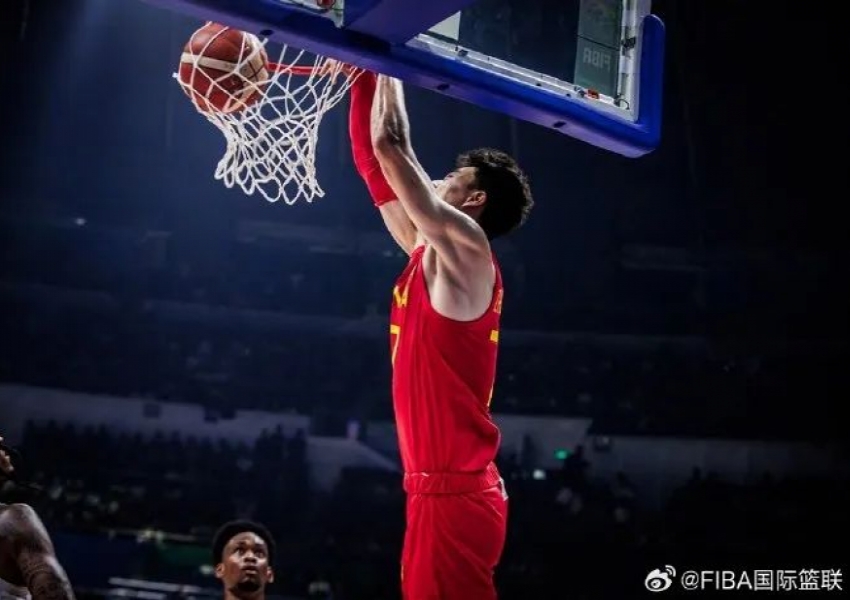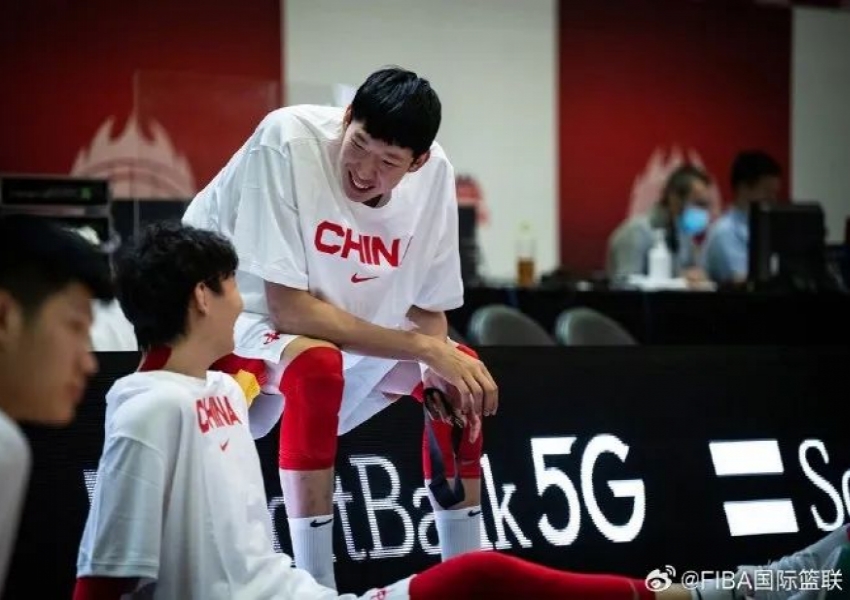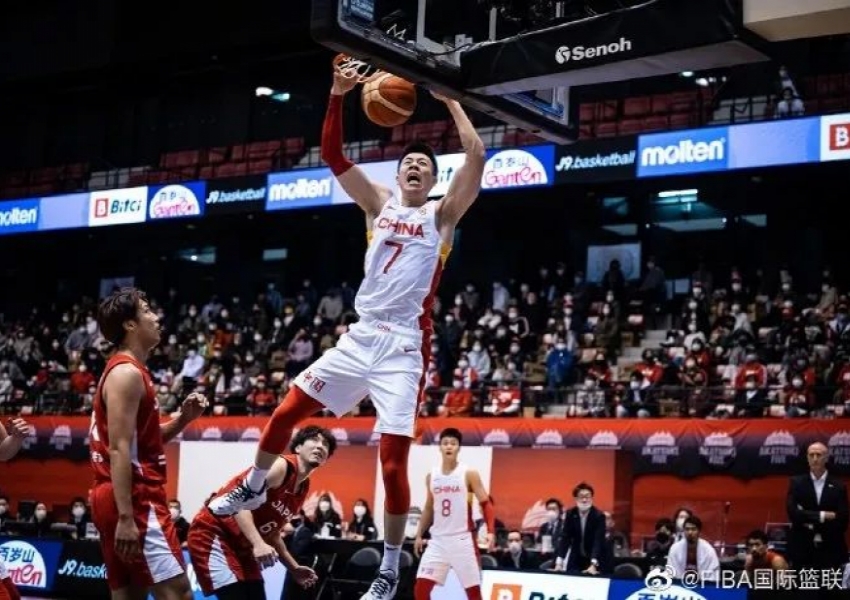Zhang Zhenlin: From Injury Controversy to China’s Top Forward
Recently, the Chinese Basketball Association (CBA) announced that several key players, including Zhao Rui and Zeng Fanbo, had to leave the national team due to injuries. Zhao and Zeng returned to their respective clubs for recovery, while Cui Yongxi headed to the Portland Trail Blazers’ preseason training camp, and Yang Hansen went to Australia for NBA Academy training. These departures have reduced the Chinese national basketball team’s training camp roster from 20 to 16 players, with no new players being called up.

Now, another blow has hit the team: Zhang Zhenlin, due to a recurrence of an old injury, has also withdrawn from the national team. This decision has sparked debate, with some questioning whether Zhang is truly injured or simply avoiding national team duties, especially given his impressive performance in the CBA playoffs.

Zhang Zhenlin had a standout season with the Liaoning Flying Leopards, playing a crucial role in their championship run. Over 12 playoff games, he averaged 42.2 minutes per game, contributing 14.9 points, 6.1 rebounds, 4.4 assists, and 1.4 steals, with shooting percentages of 39.2% from the field and 24.2% from beyond the arc. His impact was undeniable, evidenced by his average plus-minus rating of +12.3. Despite his heavy workload during the CBA playoffs, Zhang was initially absent from the national team’s first summer training camp, choosing instead to focus on personal training in the United States, including a stint at his alma mater, Tulane University.

Zhang was eventually called back to China for the second training camp, where his presence was mandatory. His situation mirrored that of Zhou Qi and Hu Mingxuan, who also skipped the first camp for training in the U.S. but returned for the second session. It’s important to note that the first camp was aimed at developing young talent, which explains why seasoned players like Zhang, Zhou, and Hu weren’t initially required to attend.
Despite the controversy surrounding his injury and absence, Zhang Zhenlin remains an indispensable player for the Chinese national team. His athleticism and defensive prowess bring significant value to the squad. Last year, during the FIBA World Cup, he averaged 23.1 minutes, 6 points, 2 rebounds, 1.2 assists, and 1.4 steals per game, with shooting percentages of 35.5% from the field and 27.8% from three-point range. He was also a key contributor in the Asian Games, where he averaged 11.2 points, 6.3 rebounds, 2.3 assists, 1.7 steals, and 1.3 blocks per game, leading the team in steals and blocks.
However, Zhang’s missed game-winning shot in the Asian Games semifinal against the Philippines has left a lasting impression on his critics. Had he made that shot, his reputation might be very different today. In sports, a single play can define a player’s career—just as Wang Shipeng’s buzzer-beater against Slovenia in the 2006 FIBA World Championship is still celebrated, Zhang’s miss has become a focal point for criticism.
At 25, Zhang Zhenlin still has plenty of opportunities to change the narrative surrounding his career. If he can deliver standout performances in upcoming tournaments, particularly in the 2027 FIBA World Cup and help lead China to the 2028 Olympics, he could once again become a fan favorite, much like he was when he first entered the scene.
Comparisons can be drawn to Zhou Qi, who faced a similar situation after his infamous turnover during the 2019 FIBA World Cup. Zhou was heavily criticized and struggled to regain his confidence. However, through strong performances in the Tokyo Olympic qualifiers, World Cup qualifiers, and the FIBA Asia Cup, Zhou slowly regained the trust of fans and critics alike. In competitive sports, performance is the ultimate measure of success. If a player excels on the court, past mistakes are often forgotten.
Zhang Zhenlin should be grateful that he still has the chance to prove himself. Unlike Zhou Qi, who had to overcome significant public backlash, Zhang’s current situation is more about potential unrealized rather than significant failures. The spotlight is still on him, and he has the opportunity to deliver.
In contrast, Wang Zhelin’s career trajectory shows what happens when a player loses that opportunity. Despite winning two CBA MVP awards and being drafted by the Memphis Grizzlies in the second round of the NBA Draft, Wang’s career has been marred by underachievement and unfulfilled potential. His struggles have left a lasting impression, overshadowing his accolades and leaving him more remembered for his shortcomings than his successes.
For Zhang Zhenlin, the road ahead is clear. If he can stay healthy and perform at the level expected of him, he can solidify his status as China’s top forward and reclaim his position as one of the nation’s most promising basketball talents. The controversy surrounding his injury and withdrawal from the national team will fade if he delivers on the court when it matters most.
In the end, Zhang’s story is far from over. With determination and focus, he has the potential to become a cornerstone of Chinese basketball for years to come. The 2027 FIBA World Cup and the 2028 Olympics are just around the corner, and with them, the opportunity for Zhang Zhenlin to cement his legacy. The question now is whether he will seize the moment and rise to the occasion, or let the doubts and criticisms define his career. Only time will tell, but for now, the ball is in Zhang’s court.
Copyright Statement:
Author: focusnba
Link: https://www.focusnba.com/sports-blog/zhang-zhenlin-from-injury-controversy-to-chinas-top-forward.htm
Source: FocusNBA
The copyright of this article belongs to the author. Reproduction is not allowed without permission.
Recommended Blog
- Kawhi Leonard Teaming Up with Steph Curry? Warriors’ Blockbuster 7-for-1 Trade Could Reshape NBA Title Race
- Zion Williamson and Ja Morant: The Fall of NBA's Future Stars and the Urgent Search for New Faces of the League
- No! Tatum’s Public Feud Unravels Team USA: A New Era of Chaos
- How Embarrassing! Has Gobert’s Stock Plummeted After This Olympics?
- Tatum's Frustration Boils Over: Warriors Beware Next Season!
- Guangdong Tigers Make a Bold Move: Signing Former Nuggets Core Player Will Barton Amidst a Wild CBA Offseason
- It's Happening Again! Trade the MVP at Lightning Speed! Schröder Has Done Everything for the Nets…
- The Underrated MVP! Could Devin Booker Be the Next Captain of Team USA?
- A $224 Million Max Contract! Kuminga's Bold Move: Warriors’ New Franchise Cornerstone?
- Olympic Glory: 61 Consecutive Wins! Farewell, Team USA Men—This is the World’s True Superteam